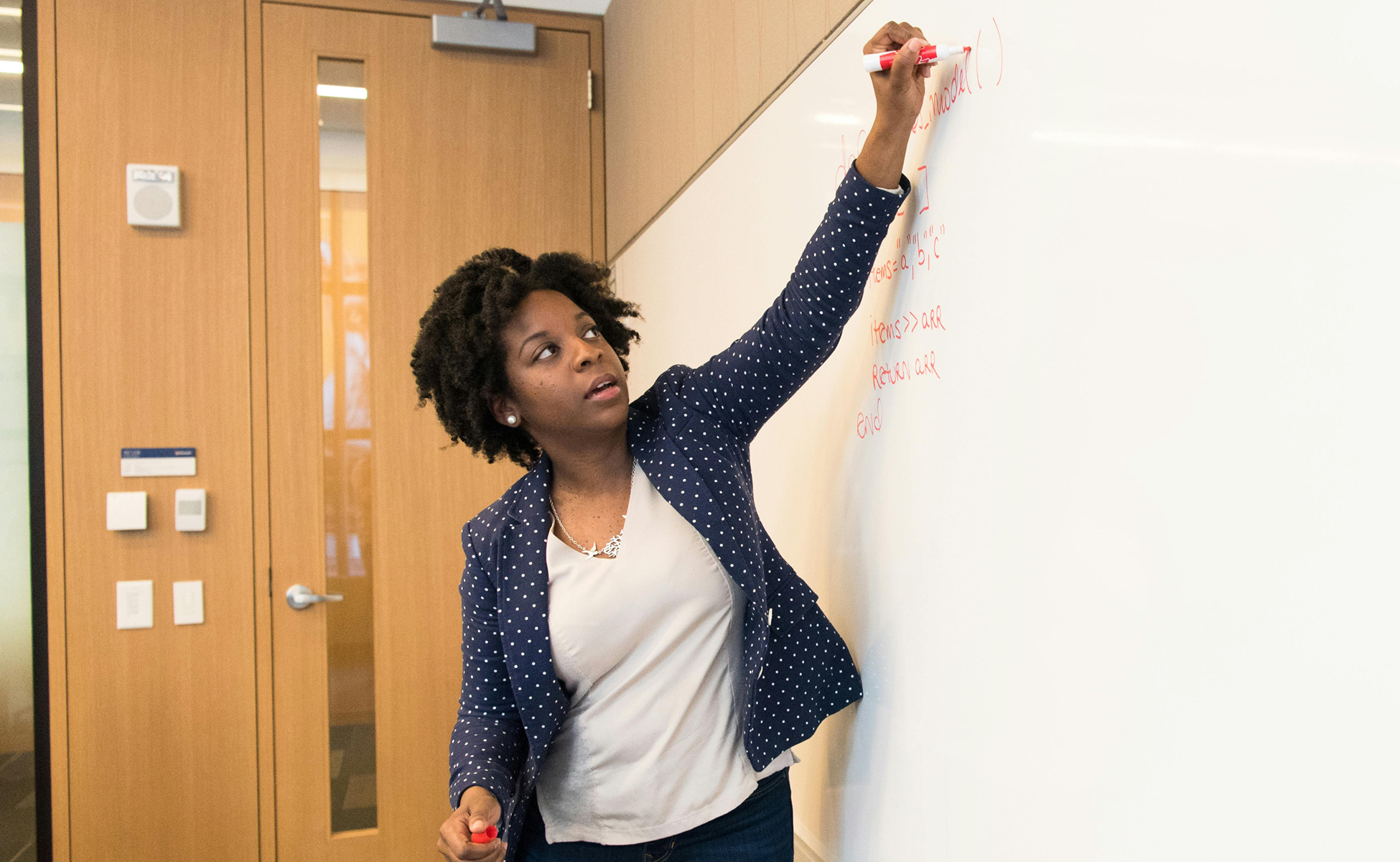Our badges and micro-credentials provide professional learning opportunities to gain skills in specific in demand areas.
Work toward your Continuing Teacher and Leader Education (CTLE) requirements and gain specialization that can help make you a more marketable, knowledgeable, and well-rounded educator.
Intensive, focused coursework and hands-on learning are benchmarks of the advanced certificate programs at the Graduate School of Education. We unite pedagogical theory and classroom practice, explore innovative teaching and outreach methods, and emphasize culturally responsive instruction.
What Are Digital Badges and Micro-Credentials?
A digital badge is a graphic verification of the skills you have mastered after successfully completing some form of professional learning or an experience in which you have participated. A digital badge is an icon, but it is not a static image. It is clickable and houses information such as the issuing institution, the date earned, the criteria required to earn the badge and the evidence that shows that you have met the required criteria. Digital badges are a great way to share your professional learning achievements and new competencies with employers, colleagues, friends, and family via social platforms such as LinkedIn, Twitter, Facebook, or through an open backpack.
The term “micro-credential” can mean a variety things to different groups, and the lack of an agreed upon definition can make it confusing. At Touro University, a micro-credential is an award consisting of more than a single badge (representing more than a single course or learning experience), but less than a full certificate or degree. Within the Canvas Credentials environment used by Touro University, it is an award earned by learners who have successfully completed the right sequence of badges in a particular pathway.
Explore our badge and micro-credential offerings below.
Neurodiversity and Social Engagement
Are you an educator eager to make a meaningful impact on your students' lives? Dive into the world of Neurodiversity and Social Engagement with our non-credit Micro-Credential program. Designed for both current students and certified teachers, this three-course journey will equip you with the knowledge and skills needed to support neurodiverse students effectively.
Social-Emotional Learning & Academic Development
There has been a significant rise in demand for Social-Emotional Learning in K-12 schools over the past few years. Our three-course, non-credit Micro-Credential program is designed for educators who are eager to introduce it into their academic curriculum due to its numerous benefits.
You can earn a badge for each course, and if you take all three courses and earn three badges, you can receive the micro-credential.


